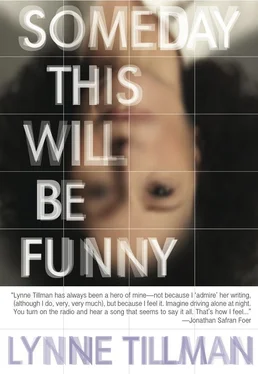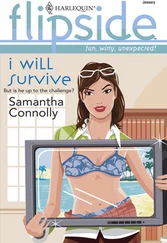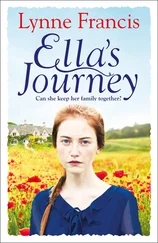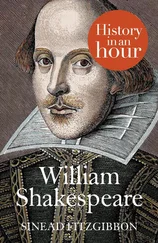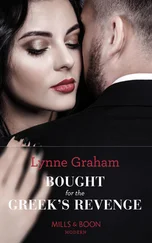“Everybody has a different idea of love. One girl I knew said, ‘I knew he loved me when he didn’t come in my mouth.’” (Andy Warhol)
Paige thought about coloring the hearts and affixing titles to them. I’m glad no one can see me, she thought, and hummed aloud: I’m a little teapot, lift me up, pour me out. I’m a common heart, a commoner, a common metaphor, a cup of tea, a loaf of bread, a bouquet of posies. I am also beside myself. Hush, Paige admonished, be still, useless heart. Then she uncorked a bottle of red wine.
Commonly, I love you.
Since childhood, Paige had read poets and listened to the music of composers and songwriters who ordinarily took love as their subject. It made sense because love is mute, nearly unspeakable, so it needs a voice; still, it’s impossible to give it fully or sufficiently. So, no one can say enough about love or for it, and it cannot be encompassed or conquered, since it’s abstract, constantly inconsistent, outrageously ineffable, obdurate, and evasive. Therefore, Love endures as a subject worth taking up.
Paige allowed these sentiments and others entry, yet feared that whatever she had experienced and read, the cautionary tales she imbibed, couldn’t protect her. She hoped, desperately, to invest in knowledge and gain strength for the lovesick nights, for those raw, endless hours that robbed her blind and stole her reason.
“The night murmurs/Its thousand loves/ And false counsels/ To soften and seduce the heart.” (Puccini, Tosca)
“There was a time when I believed your love belonged to me/ Now I find that you’re shackled to a memory/… How can I free your doubtful mind?/ And melt your cold, cold heart.” (Hank Williams)
Blindly, I love you.
Dearest,
Even when my eyes hurt and everything’s blurred, I keep writing and reading. Weak eyes still love stories. Remember when you said I’m full of stories. You are too. Isn’t this how you seduced me? Wasn’t it your story, how you told it, how I sank into it, submitted, and collapsed into the superb rendition of your life — into you? I thought I saw you in your story. And isn’t this how I seduced you? It wasn’t my beauty, was it? It wasn’t my youth, was it? I think it was my story, one word after another after another, circling around you, gathering you to me. My lines roped you in, the way yours did me, our lines — to continue this pathetic figure of speech — tangled, and we became one story. I have a French friend who always said about her love affairs, I’m having a little story with him. With words like sticky plums, I drew you close.
My grip, on you, on my own tales, is sometimes tenuous. I might slip, but I always love you.
Paige drank the wine, but she barely tasted it, she was transfixed. In her red bathrobe she looked comical, like a giant valentine. From time to time she glanced at the clock on the wall, but she wasn’t sure what time it was. Every month the clock needed a new battery, but she forgot to change it. It was good that actual hearts didn’t have batteries to be changed or recharged. Except there were pacemakers. Maybe that’s why she felt run down, her heart was mimicking a machine. Paige stacked the paper hearts like honeyed pancakes.
Sweetly, I love you.
“She was so much in love, she wanted to make love all the time. He was away. She left their house and walked to a canal and saw a man standing on a bridge. She liked him, and it was easy to make love. Her exciting, grand passion threatened to make negligible any differences between one man and another. And, also, her love made her expansive, bigger than she was. She abandoned herself to the threat of self-annihilation — that’s what love is — and spent the afternoon with the stranger. There was no restraint, she gave him everything he wanted, without regret. He gave her his address, and she tore it up later.”
“Such wayward ways hath Love, that most part in discord/ Our wills do stand, whereby our hearts seldom do accord.” (Henry Howard, Earl of Surrey)
Discordantly, I love you.
You are everything. “You” is everything to the sentence, I love you, for without “you,” could “I” love?
Dearest,
It‘s strange to write “I love you.” I don’t mean to you, what’s strange is to write it, to commit it to paper or the screen. I don’t mean that it could be anyone but you when I write, I love you. Only you could be the you that I love. That’s obvious. Isn’t it obvious that I love you, and that, without you, I cannot love. You alone will see where I’m leading, where my thought carries me, because my thought carries me to you.
“The air is fragrant and oddly pure this morning. It wafts into my room and reminds me of days when I played for hours in the forest down the road, our jungle, or maybe it was next to the house then, back then. I can’t remember. I remember how in the winter the pond would freeze over and all of us kids would ice skate, our hands tucked into our sleeves or sheltered safely in woolen mittens. Mittens are for little creatures who need shelter all the time. With mittens we are small animals with paws. The boys I played with — were you one of them? Even then? Steve, Ronnie, Jerry. They were always around the house. Jerry was dark and round. Ronnie, tall and blond, angular and angry, a bad boy. He became a lawyer. Steve stood apart and sulked. I wonder what happened to him.”
Abruptly Paige jumped up from the table. At the sink she poured out the dregs of the tea. It was late, and the city was quiet, sleeping. Does a city sleep when it can’t close its eyes? Isn’t everyone wrong about something like love?
Above her, in the upstairs apartment, a man strode heavily across the floor, from the refrigerator to the toilet, to the bed or in a different order. He stomped around like an enraged elephant, like a lover floundering from betrayal.
Love is not silent, love is loud and violent and vicious with a lovely, unsatisfactory language entangled on a wet tongue that entices. Paige danced around the kitchen, one hand gently patting her stomach.
“I danced on ‘Shop Around’/ but never the flip side/ ‘Who’s Lovin’ You’/ boppin’ was safer than grindin’/ (which is why you should not come around)” (Thulani Davis)
The language of and for love explains and isn’t explanatory enough. If it’s not learned well or early, but if one is a quick study, one could, with diligence, pick it up later. Paige wondered: Is psychoanalysis the way to learn to love later?
“The analyst’s couch is the only place where the social contract explicitly authorizes a search for love — albeit a private one.” (Julia Kristeva)
Childishly, I love you.
Dearest,
I don’t want to love you badly. It’s intangible, I suppose, how to love, but since it resides in language and the language of the body — can touch be taught? — it has a presence and effects, and it also exists with words. Love is a grammar, a style, replete with physical gestures and utterances and yellow marks flashing on gray-green computer screens. What if my hard drive crashes? What if you stop loving me? What if I stop loving you? What then? What words would ever be enough?
“…Once you see emotions from a certain angle, you can never think of them as real again. That’s what more or less has happened to me. I don’t really know if I was ever capable of love, but after the 60s, I never thought in terms of ‘love’ again.” (Andy Warhol)
Dearest,
I hate this something you and I didn’t name. It’s gone out of control. With time, with time weighing us down, with no time to think about the future, with every fear about time passing — when will love come? — we grab love and hold it tight. Now we have it, now we have it, here it is, do you see it? I give it to you. I will forget everything else to love you.
Читать дальше
